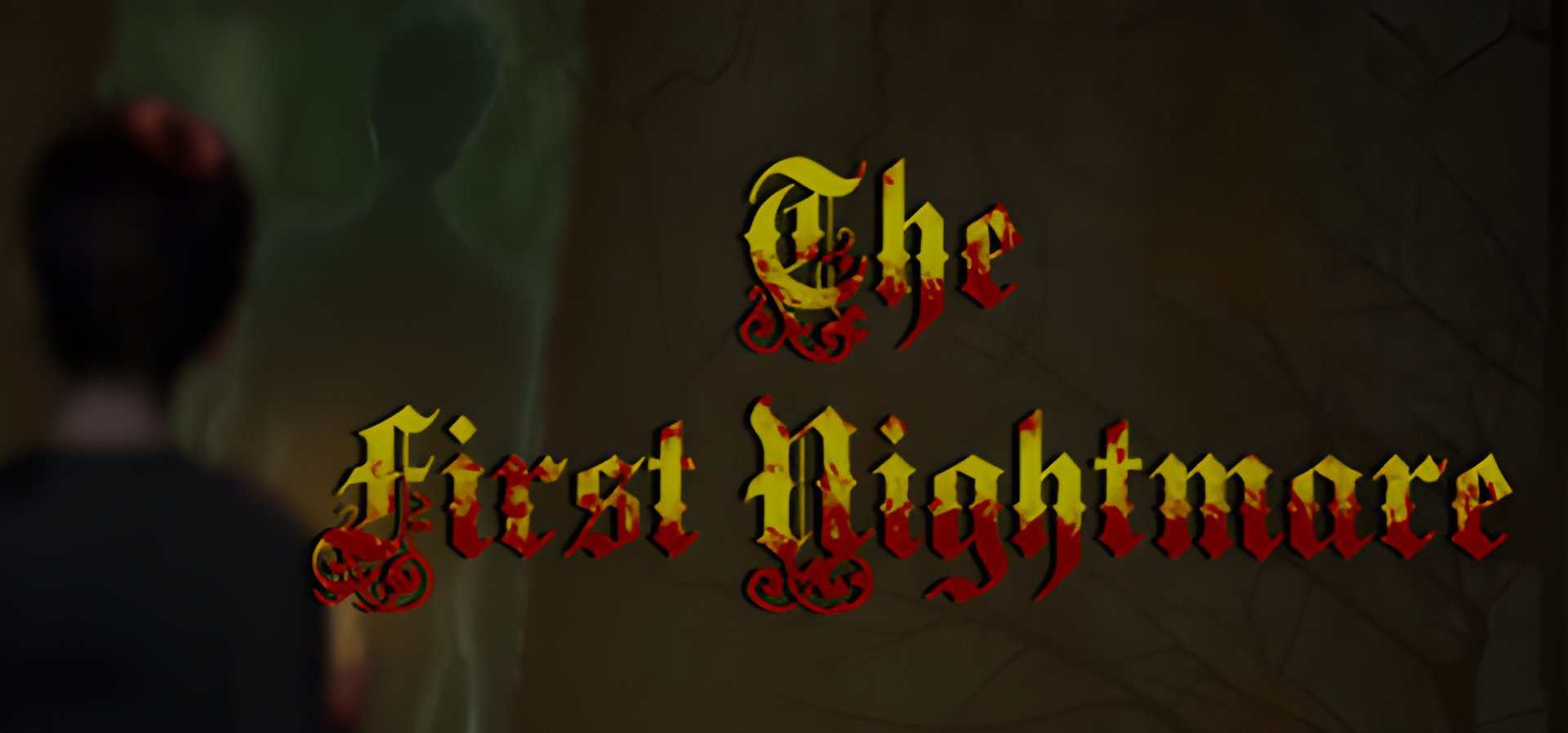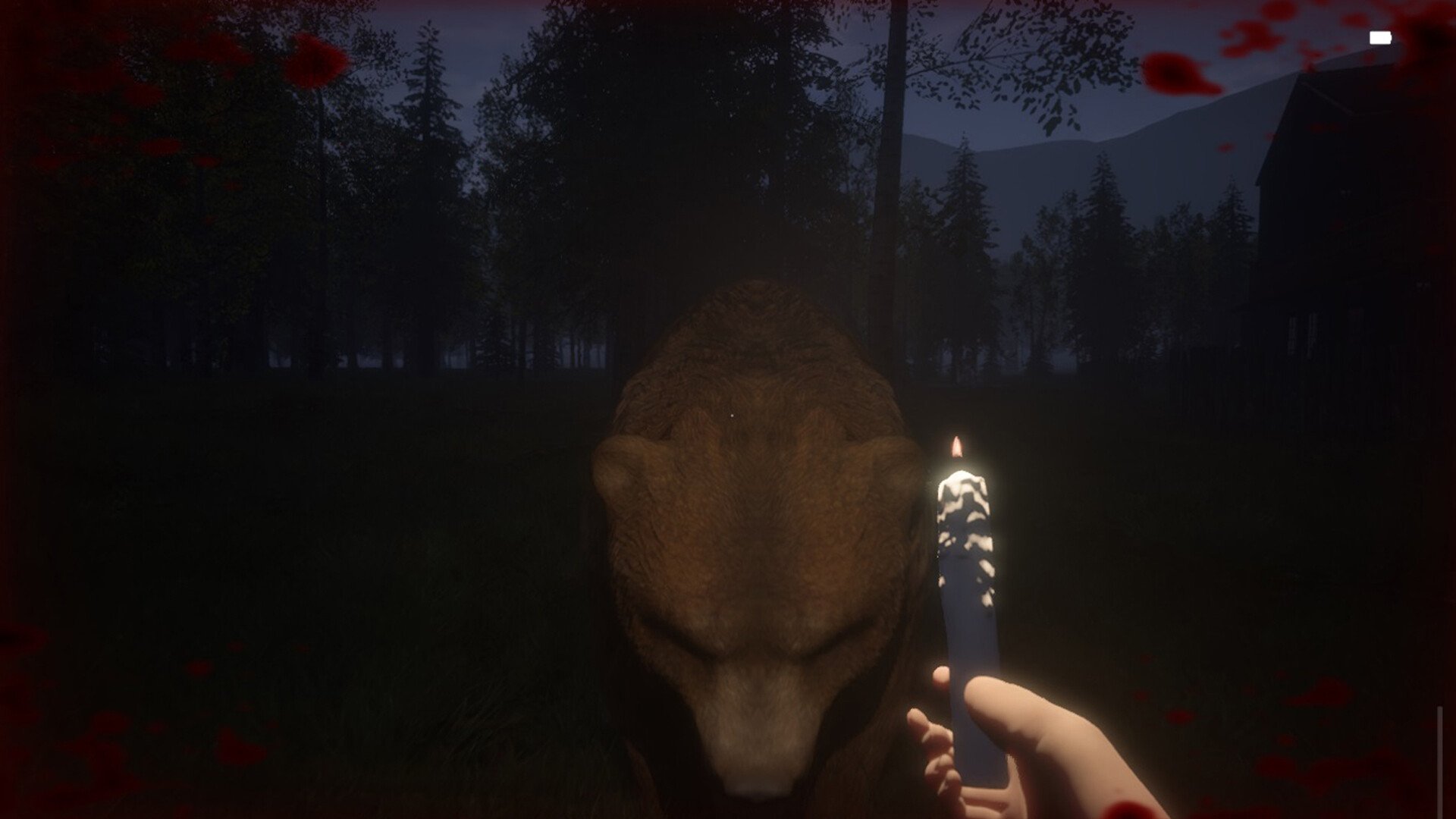In The First Nightmare, prepare to step into a chilling Victorian-era world where psychological horror reigns supreme. Scheduled for release on Steam in 2025, this indie title promises a suspenseful journey as you unravel the mystery of a missing mother while evading a bloodthirsty enemy. With a focus on stealth, puzzle-solving, and resource management, The First Nightmare aims to trap players in a haunting experience they won't soon forget. Will you be able to discover your mother's whereabouts, and so wake up from this nightmare?

Unraveling the Story of The First Nightmare
The First Nightmare centers around Johnny, who returns home after receiving a distressing call from his ailing mother. However, upon arrival, he finds his childhood home drastically altered, his mother vanished, and an ominous presence lurking within. Players must navigate this hostile and confusing environment, piecing together clues to uncover the truth behind his mother's disappearance. Set in a timeless, logic-defying Victorian setting, the game challenges players to distinguish between reality and fiction as they delve deeper into the mystery. The gameplay revolves around psychological horror elements, emphasizing stealth, puzzle-solving, and resource management. Players will need to carefully explore the environment, decipher cryptic clues, and conserve their limited resources to survive. The core mission is to find Johnny's mother by navigating the eerie house, solving intricate puzzles, and evading a relentless enemy determined to keep him trapped in this waking nightmare. The game's Victorian setting adds a layer of historical atmosphere, immersing players in a world of eerie darkness and foreboding mystery. Successfully navigating this nightmare requires not only intelligence and resourcefulness but also the ability to remain calm under pressure. The First Nightmare appeals to fans of psychological horror games that emphasize narrative depth, immersive environments, and challenging gameplay. The focus on stealth and puzzle-solving distinguishes it from more action-oriented horror titles, catering to players who enjoy a slower, more cerebral gaming experience.
Performance Expectations and Value Proposition
Minimum and Recommended System Requirements
To ensure a smooth and immersive experience with The First Nightmare, it's essential to consider the game's system requirements. Meeting these specifications will allow players to fully appreciate the game's intricate details and suspenseful atmosphere.
Minimum System Requirements:
- OS: Windows 10 (64-bit versions)
- Processor: Intel Core i5-7600, AMD Ryzen 1600
- Memory: 8000 MB RAM
- Graphics: NVidia GTX 1050 4GB, AMD RX 560 4GB
- DirectX: Version 11
- Storage: 9000 MB available space
Recommended System Requirements:
- OS: Windows 11 (64-bit versions)
- Processor: Intel Core i5-10400, AMD Ryzen 3600
- Memory: 16 MB RAM
- Graphics: NVidia RTX 2060 6GB, AMD RX 6600 8GB
- DirectX: Version 12
- Storage: 9000 MB available space
Performance Considerations
Given the game's focus on atmospheric environments and detailed graphics, performance will likely depend heavily on the player's hardware. While the minimum requirements suggest that the game should be playable on modest systems, achieving consistent frame rates and optimal visual fidelity may require higher-end components. Players with older or less powerful hardware may need to adjust graphics settings to maintain a smooth experience. Optimization will be key to ensuring that a broad range of players can enjoy the game without significant performance issues. Potential performance bottlenecks could arise from the game's detailed environments, intricate lighting effects, and complex character models. Addressing these areas through optimization efforts will be crucial for maximizing the game's accessibility and appeal.
Value Analysis
As The First Nightmare is still upcoming, a precise price point remains unconfirmed. However, assessing its potential value requires considering its genre, gameplay mechanics, and overall content offering. For fans of psychological horror games, the promise of a narrative-driven experience with an emphasis on stealth and puzzle-solving could justify a higher price point. The game's Victorian setting and immersive atmosphere further enhance its value proposition, offering a unique and compelling experience for players seeking atmospheric horror. However, if the game's content is limited or its mechanics feel repetitive, it may struggle to compete with other titles in the genre. Ultimately, the perceived value of The First Nightmare will depend on its ability to deliver a consistently engaging and suspenseful experience that keeps players hooked from beginning to end. The replayability factor, influenced by multiple endings or hidden secrets, also contributes significantly to its long-term value.

Contextual Analysis: The Indie Horror Landscape
The First Nightmare enters a market brimming with indie horror titles, each vying for the attention of thrill-seeking gamers. Its success hinges on carving out a unique identity and delivering a memorable experience that resonates with its target audience. The First Nightmare can stand out by leveraging its distinctive Victorian setting and psychological horror elements. In a market saturated with jump-scare-driven experiences, a focus on atmospheric tension, narrative depth, and mind-bending puzzles could attract players seeking a more cerebral form of horror. Furthermore, the game's stealth-based mechanics and emphasis on resource management add layers of complexity and challenge that can appeal to hardcore horror fans. It will be essential for the developers to clearly communicate these unique selling points through trailers, gameplay demos, and community engagement. Creating a strong sense of anticipation and excitement surrounding the game's release can significantly boost its visibility and sales potential. Engaging with streamers and content creators can further amplify the game's reach and introduce it to a wider audience. The First Nightmare could benefit from post-launch support in the form of patches, updates, and potentially even DLC. Addressing player feedback, fixing bugs, and adding new content can extend the game's lifespan and foster a loyal community. Regular communication with players and active participation in online forums can help build a positive reputation and encourage word-of-mouth marketing. By nurturing a strong relationship with its player base, The First Nightmare can establish itself as a memorable and enduring indie horror title.
Final Verdict: Is The First Nightmare Worth the Anticipation?
The First Nightmare presents a promising addition to the psychological horror genre, blending a haunting Victorian setting with stealth-based gameplay and intricate puzzles. For fans of atmospheric horror experiences that prioritize narrative depth and mind-bending challenges, this title could be a worthy addition to your Steam library. The game's success will depend on its ability to deliver a consistently engaging and suspenseful experience while maintaining smooth performance across a range of hardware configurations. If the developers can successfully execute their vision, The First Nightmare has the potential to become a memorable and enduring indie horror title. Keep an eye on its release in 2025 and prepare to confront your deepest fears in this chilling Victorian nightmare. Players who appreciate titles like Amnesia: The Dark Descent or Layers of Fear will likely find themselves drawn to the atmospheric tension and psychological elements of The First Nightmare. Whether it ultimately lives up to its potential remains to be seen, but the promise of a haunting and thought-provoking horror experience is certainly enticing.
Pros & Cons
✅ Pros
- Intriguing Victorian setting adds unique atmosphere
- Focus on psychological horror and stealth mechanics
- Challenging puzzles that require strategic thinking
- Potential for a deeply immersive and suspenseful experience
- Strong narrative focus with a compelling mystery
❌ Cons
- Performance may be demanding on lower-end systems
- Over-reliance on stealth could become repetitive
- Limited information available prior to release
- Indie horror market is highly competitive
- Success hinges on execution of key gameplay elements